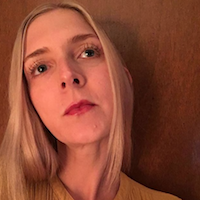If you grew up in an American household, “dieting” was most likely integrated very early into your vocabulary.
In my own home, my grandmother and mother constantly talked about good foods, bad foods, and exercise. I remember being told that women of a certain weight should or shouldn’t wear certain things, that thunder thighs were a result of laziness and not eating properly, and that too much fat was bad for you.
It took me years of dealing with chronic illness and tremendous work on myself to unlearn these habits and form a healthy relationship with food and my body. Even now, I am a work in progress.
My mother and grandmother’s views about body and exercise are the same as those of many others. They thought what they were doing was right for themselves and their bodies. They wanted to look and feel good. They figured that by eating “right” or by following a specific diet they could achieve optimal health.
But what happens when you have a chronic illness and need to eat a certain way to maintain your health? With the already unhealthy behaviors we have toward food, how do we find that happy medium?
I never thought twice about what I ate when I was young. I had a lot of energy and a healthy digestive track. Then, around the age of 10, I got sick and just didn’t get better. This was also around the time I began to go through puberty. By the age of 13, I put on weight rapidly. I was also having numbness and paralysis that would come and go. I spent three months of the sixth grade with Bell’s palsy on the right side of my face.
I was living life with a war going on inside of me every day. From being sick this long with a nonexistent immune system, I picked up a great deal of health issues over the years. It was hard to keep track and know what caused what. It was a snowball effect of illness.
I began paying attention to my weight and eating properly in my mid-20s. I knew something was wrong with me, and no one was giving me answers—so I began to blame myself. There had to be something I was doing that was causing me to be sick all the time.
I started omitting the foods that made me feel sick after eating them. I went vegetarian for many years, and for two of those I was vegan. I tried every diet under the sun. I bought every book, read every article, and began food logging to make sure I was eating perfectly. I eventually studied nutrition in college and completed a nutrition and wellness certification program. I knew anything and everything about nutrition. But I was still sick.
Although the way I ate was a crucial first step to getting a proper diagnosis, I now look back and understand why my body was reacting the way it was, and how it was much more than my diet specifically.
During an illness, our whole body is compromised so that we become reactive to certain foods, scents, sounds, and even noises. Our immune system is weakened, and the toxins in the environment can effect our brain—specifically the limbic system. This can leave us feeling like a raw nerve.
A large number of chronically ill patients also deal with hormonal imbalances that can cause appetite fluctuations, like binge eating, cravings, or no appetite at all. The stress hormone cortisol, as well as the hunger hormones leptin and ghrelin, play a huge role in our appetite. All of these factors can make it tricky to deal with our body during the healing process.
In our own healing journeys, it is important to find what works best for us. The diets that we follow can be precursors to what works (or doesn’t) for our bodies. Learning to eat whole, organic foods is a great place to start to fuel the body with what it needs to heal.
Learning to eat a healthy diet is different than dieting. It does not benefit anyone to google foods in the grocery store to see if they are “right” or “wrong” for us. Labeling things this way can lead to disordered eating patterns. We should rely on what our bodies are telling us, not what some article has to say. It becomes more important to simply eat what is right for us than to follow a specific diet.
Especially for the chronically ill patient, there are so many other factors in life that require focus. Learning to eat right should be fun and something we enjoy doing for ourselves and our bodies. We are fortunate enough to have detailed food allergy and intolerance testing that can help to pinpoint exactly what works for us. With that being said, it can be of benefit to eat a specific way with an illness, so it is sometimes important to focus on specific foods and diets. In a nutshell—it is not a black or white situation.
In my own health journey, there finally came a day when I decided to let go of “dieting” and just eat healthy. I shed all of the diet labels and just started eating what felt right for me. When someone asks me what I can eat, I always reply, “Anything—but I choose not to eat certain things.” I never want to tell my body again that something is bad for it or shame myself for eating or living a certain way. I now give my body what it needs.
What our own body needs is not always the same as what someone else’s body needs. We should listen to that. We can and should honor the differences. We all deserve to live our healthiest and happiest lives.


 Share on bsky
Share on bsky





Read 2 comments and reply